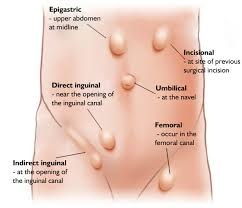Chronic Obstructive Pulmonary Disease (COPD) can be signified by shortness of breath, frequent coughing, and increased breathlessness. Although long-term, the condition can be effectively managed through medications and lifestyle changes. Working with medical specialist Kalpana Desai MD will help you understand the necessary steps you need to take. Your doctor can design a treatment plan based on your specific issue and needs. Getting an accurate diagnosis first is critical to determine the severity of your situation and be certain that the actions you take will help. The following tips can guide you.
Learn to Manage Your Emotions
COPD can be emotionally demanding as it is physical. It is essential to discuss with your doctor coping strategies to help you manage your emotions. It is normal to deal with sadness, depression, or anger when dealing with COPD. You can talk to your close friend or relatives about how you feel and ask for help when needed. It is also important to keep a journal of your feelings to track down triggers and minimize them. Also, talk to your doctor when you cannot take it anymore or consider seeking counseling or a psychologist.
Consider a Support Group
Managing COPD is a long-term commitment, and you might need to be around people who understand you. It can be easier to cope with COPD when you are around people going through the same thing. It becomes easier to learn how other people are dealing with their situations, and it can help you learn new ways to deal with your condition. Please consult your doctor and take their recommendations for support groups.
Talk to Your Doctor About Exercises
Exercise can help you deal with COPD. However, remember that you could be experiencing shortness of breath, and not all exercises can benefit you. Therefore, please consult your doctor to design a good exercise plan. Major on exercises that can strengthen your respiratory muscles and improve circulation. You might want to invest more in walking, stretching, swimming, biking, and strength training. Skip exercise when you are enduring fever, infection, chest pain, nausea, or is out of oxygen.
Consider Pulmonary Rehabilitation
Talk to your doctor about going to pulmonary rehab to help you manage your condition. The rehabilitation can include strategies like mental health counseling, disease management, education, exercise routine, and nutritional counseling to manage your condition. Rehabilitation aims at helping you engage in your daily activities and lead a quality life as you manage COPD. The rehab involves different medical professionals who will work together for your overall well-being.
Check Your Diet
It can be helpful to minimize your carbohydrate intake since they produce more carbon dioxide. It can help you breathe better by helping you inhale more oxygen. Consult with your doctor to understand the specific foods you should cut. Also, it can help to eat smaller meals than large meals, which can take up space and make breathing difficult. Also, drinking a lot of water is crucial to keep your mucus thin and easy to remove. Your doctor can help you adjust your water intake according to your specific needs.
COPD is easy to manage after an accurate diagnosis. Contact the Integrated Family Medical Center specialists if you are enduring the condition. Seek a consultation appointment online or make a call right away for help.





